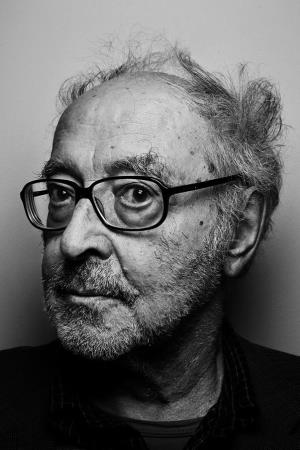
Born in 1930, Jean-Luc Godard became acquainted, while at university, with Claude Chabrol, Francois Truffaut, Eric Rohmer and Jacques Rivette, forming part of a group of passionate young film critics writing in Cahiers du Cinéma, and film-makers devoted to exploring new possibilities in cinema. A bout de souffle (Breathless) (1959) was his first feature. Made on a shoe-string budget, it was spontaneous, vibrant and ground breakingly original. From then until 1967/8 was loosely his first period w
Gender: Male
Born On: 3-Dec-1930
Last Info Sync: 9/13/2018 4:38:00 PM
Jean-Luc Godard's Filmography on TV
List of programs starring Jean-Luc Godard on tv. Programs are sorted in order of last seen on tv. Last updated: Jun 29, 2024 5:02 AM
Le livre d'image (2018)
Jean-Luc Godard returns with a bracing, beautiful and confrontational essay film. Splicing together classic film clips and newsreel footage, often stretched, saturated and distorted almost beyond recognition, The Image Book interrogates our relationship with film, culture and global politics.
Hitchcock/Truffaut (2015)
Filmmakers discuss the legacy of Alfred Hitchcock and the book “Hitchcock/Truffaut” (“Le cinéma selon Hitchcock”), written by François Truffaut and published in 1966.
Sceneggiatura del film Passione (1982)
Godard constructs a lyrical study of the cinematic and creative process by deconstructing the story of his 1982 film Passion. “I didn’t want to write the script,” he states, “I wanted to see it.” Positioning himself in a video editing suite in front of a white film screen that evokes for him the “famous blank page of Mallarmé,” Godard uses video as a sketchbook with which to reconceive the film. The result is a philosophical, often humorous rumination on the desire and labor that inform the conc
Reporters (1981)
The co-founder of the Gamma press agency, Raymond Depardon, created this documentary of press photographers in Paris and their subjects by following the photographers around for one month, in October, 1980. In-between long hours waiting for a celebrity to emerge from a restaurant or a hotel, boredom immediately switches to fast action as the cameras click and roll when the person appears. The reaction to the gaggle of photographers is as varied as the people they often literally chase all around
The East Wind (1970)
Wind From the East is a product of Jean-Luc Godard's involvement, during the late 60s and early 70s, with a collective filmmaking experiment known as the Dziga Vertov Group. The film is, typically of the films he made during this period, about ideas and simultaneously about how best to express those ideas through the medium of film. The film deals with the situation of a strike and, during its first half, methodically analyzes the different components of the strike: the workers, the radical stud
Il disprezzo (1963)
A philistine in the art film business, Jeremy Prokosch is a producer unhappy with the work of his director. Prokosch has hired Fritz Lang to direct an adaptation of "The Odyssey," but when it seems that the legendary filmmaker is making a picture destined to bomb at the box office, he brings in a screenwriter to energize the script. The professional intersects with the personal when a rift develops between the writer and his wife.
Poga (1963)
A philistine in the art film business, Jeremy Prokosch is a producer unhappy with the work of his director. Prokosch has hired Fritz Lang (as himself) to direct an adaptation of "The Odyssey," but when it seems that the legendary filmmaker is making a picture destined to bomb at the box office, he brings in a screenwriter to energize the script. The professional intersects with the personal when a rift develops between the writer and his wife.
Cleo dalle 5 alle 7 (1962)
Agnès Varda eloquently captures Paris in the sixties with this real-time portrait of a singer set adrift in the city as she awaits test results of a biopsy. A chronicle of the minutes of one woman’s life, Cléo from 5 to 7 is a spirited mix of vivid vérité and melodrama, featuring a score by Michel Legrand and cameos by Jean-Luc Godard and Anna Karina.
